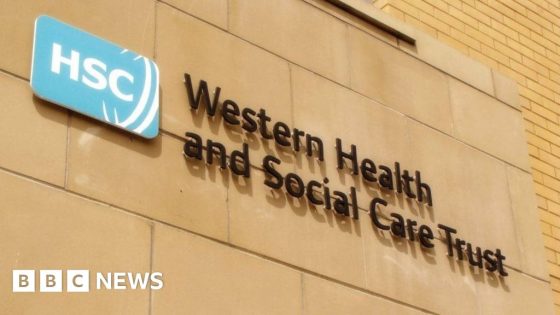Key Points
- The Greens and Coalition have secured a two-month delay on the government’s Help to Buy bill in the Senate.
- Greens housing spokesperson Max Chandler-Mather is urging Labor to negotiate with the party.
- Prime Minister Anthony Albanese has accused the Greens of forming a ‘noalition’ to block progress on housing.
The prime minister has confirmed Labor will reintroduce its Help to Buy legislation into the House of Representatives in October, leaving open the possibility of a double dissolution election.
On Wednesday, the Senate voted to defer a vote on the shared equity bill until 26 November.
Speaking to ABC Brisbane on Wednesday afternoon, Albanese said the government would “continue to argue our case” as it reintroduced the legislation into the House next month, potentially speeding up another Senate vote.
“There’s no legitimate argument being put forward of why this legislation isn’t worthy of support.”
Earlier in the afternoon, Albanese told Nova radio “we’ll have another crack at it” when asked about the government’s next steps to pass through its housing agenda.
Why was the housing bill delayed?
The Greens voted with the Coalition to secure a two-month delay on the Help to Buy bill in the Senate on Wednesday, with Jacqui Lambie and David Pocock the only senators on the crossbench to side with the government.
Albanese has repeatedly accused the Greens of blocking progress and forming a ‘noalition’ with the Liberals and Nationals, as Labor faces a growing list of stymied bills including an overhaul to environmental laws.
On Tuesday, cabinet minister Murray Watt of Australian politics had paired up to “stop young people from being able to buy a home”.
Greens leader Adam Bandt denied his party was “bulldozing” progress and said it would continue to fight “for renters and distressed mortgage holders”.
“The feedback I’m getting is that people can see that finally, they’ve got a voice in parliament … I’m getting nothing but good feedback from people who are saying, ‘Yes, keep pushing Labor to take the housing and rental crisis seriously,'” Bandt said on Wednesday.
Greens housing spokesman Max Chandler-Mather has warned the negotiations are Labor’s last opportunity to help renters and first-home buyers before the next election.
“It is desperately cruel of Labor to pretend Labor’s two bills will help, when one locks out 99.8 per cent of renters and drives up house prices for everyone, and the other gives tax breaks to developers to build expensive apartments they already planned to build,” he said.
Why is there opposition to the housing bills?
Labor’s Help to Buy housing scheme would support 40,000 eligible buyers with an equity contribution of up to 40 per cent for new homes, with a deposit as small as 2 per cent.
The Greens are critical of the scheme, which they say will drive up house prices, despite the Grattan Institute predicting a marginal increase of 0.016 per cent or the equivalent of $113 for a $700,000 home.
Grattan Institute economist Brendan Coates supports both bills, which he said were a “step in the right direction”.
“If we were to offer this kind of scheme to every Australian, then it probably would have a bigger impact on house prices, but that’s not necessary because many Australians are still able to buy their own home,” he told SBS News.
The Greens say the other bill, the Build to Rent scheme, will give unfair tax breaks to developers who will build rental stock, with at least 10 per cent of the dwellings committed to affordable housing.
The party is calling on the government to amend its bills by including a cap on rent increases, further investment in public housing, and a phase-out of tax handouts for property developers.
Meanwhile, the Coalition has opposed the measures from the onset, criticising any form of shared equity as it advocates for first-home buyers to own 100 per cent of their home.
Coates said outside the political theatre in parliament, neither scheme will fix housing affordability as they are mere “pieces of the puzzle”.
Instead, he said governments could focus on building more housing, tax reform at both state and federal level, reassessing stamp duty and rental assistance for low-income earners.
“Those are the things that will make the big difference to housing affordability for Australians,” he said.
What’s next for the government’s housing agenda?
As it stands, a vote on the bill will go ahead on 26 November, whether an agreement has been reached or not.
The Greens argue that “applying pressure” works, pointing to their success in securing $3 billion of the Housing Australia Future Fund for public and community housing.
It is expected negotiations will continue behind the scenes, but the additional time is a political gamble for both sides.
The Greens, a self-proclaimed party of renters, risk appearing like they’re blocking access for first-home buyers on low incomes after advocating on the issue for years.
A double dissolution not out of the question
Albanese if the bill was rejected a second time.
A double dissolution election dissolves both chambers of parliament, so all members would be up for election instead of half of the Senate usually up at an ordinary election. The next election is due in May 2025.
For a double dissolution to occur, the Senate needs to reject a bill that has passed the House of Representatives twice, and those rejections need to be at least three months apart.
That creates what’s called a double dissolution ‘trigger’, but the government doesn’t need to pull it immediately.
A double dissolution can’t be held less than six months before the House of Representatives’ term ends.
With additional reporting by the Australian Associated Press




